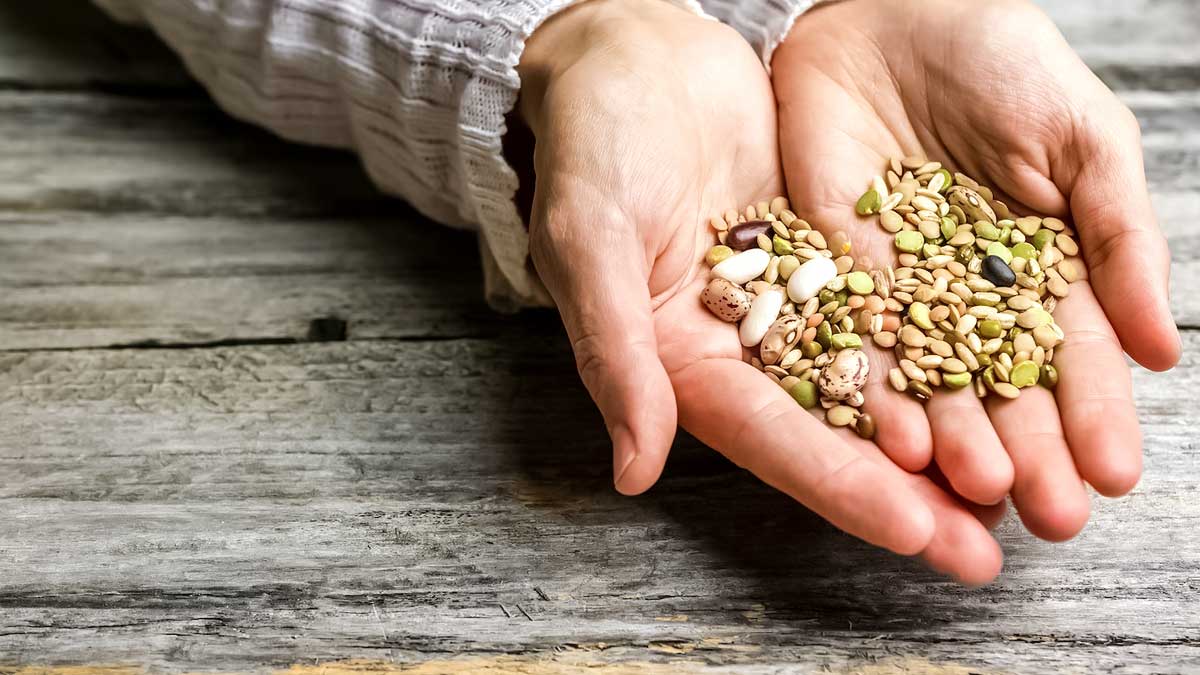
Diabetes, a prevalent chronic condition affecting millions worldwide, requires careful management to maintain stable blood sugar levels. While medication, exercise, and a balanced diet are fundamental components of diabetes care, certain seeds have gained attention for their potential to help regulate blood sugar. These tiny powerhouses are packed with essential nutrients and bioactive compounds that can support glucose control.
Table of Content:-
Sakshi Singh, Founder, Clinical Nutrition and Dietetics, listed seeds that people with diabetes should consume.
According to the World Health Organization (WHO), more than 50% of people do not know they have diabetes, which can cause serious health problems if not caught early and managed. Diet, exercise, medication, and routine screening and treatment for complications can all help treat diabetes and delay or prevent its effects.

Singh said, “It is usually recommended to include low Glycemic Index (GI) foods in your diet to help manage diabetes and prevent sudden sugar rises. Controlling blood sugar levels requires a balanced diet and regular exercise. However, maintaining a healthy diet does not require one to lead a life of deprivation. Making some simple adjustments to what you eat, how much you consume, and when you eat is the key to managing diabetes. Body health is correlated with diet.”
Seeds To Consume To Control Blood Sugar Levels
Singh Listed the seeds that people with diabetes should include in their diet regularly as follows:

Pumpkin Seeds
Pumpkin seeds are not only a delicious snack but also a nutritious choice for individuals with diabetes. It is a great source of magnesium, zinc, copper, and selenium. It plays a crucial role in carbohydrate metabolism and insulin production, lowering your diabetes risk. Its deficiency in the older population is associated with insulin resistance, metabolic syndrome, Coronary Heart Disease (CHD), and osteoporosis.
Fenugreek Seeds (Methi)
Singh said, “Fenugreek seeds help lower blood glucose in patients with diabetes. It acts as an antidiabetic, by reducing fasting blood glucose levels and improving glucose tolerance in humans.” You can soak the seeds in one cup of water overnight and drink it the next day. It helps with blood glucose regulation.
Also Read: Skin Infections To Blisters: Expert Lists Signs Of Diabetes That Appear On Skin

Sunflower Seeds
Sunflower seeds are versatile and tasty that can be enjoyed on their own or added to various dishes. Galactomannan, a kind of soluble fibre found in sunflower seeds, is an essential element that slows down the rate of carbohydrate digestion and absorption. This decreases diabetes blood glucose levels and improves glucose tolerance.
Jamun Seeds
Singh said, “Jamun seeds, in powdered form, can help in reducing blood sugar levels. It has a low GI, therefore diabetics should eat it in the summer. It reduces diabetes symptoms including frequent urination and pushing.”
Sabja Seeds (Basil Seeds)
It is known as the king of herbs due to its wide range of uses in medicine. Basil seeds are rich in fibre, antioxidants, omega-3 fatty acids, and other nutrients. In those with type 2 diabetes, sabja seeds have been discovered to be quite efficient at preserving blood sugar levels.
Also Read: Diabetes Diet: 7 Breakfast Options To Control Blood Sugar Levels
Sesame Seeds
Sesame seeds are tiny but mighty when it comes to their impact on blood sugar management. They are an excellent source of magnesium, fibre, and lignans. The fibre in sesame seeds slows down digestion, preventing rapid increases in blood sugar levels. The lignans present in sesame seeds have been found to have antidiabetic properties and may help improve insulin sensitivity.
Bottomline
Incorporating these seeds into your daily diet can be a valuable strategy for managing diabetes and promoting stable blood sugar levels. However, it is important to remember that a balanced diet, regular exercise, and proper medical management are key components of diabetes care.
Disclaimer
The information in this article is provided by the expert. However, we advise you to consult with a healthcare professional or a registered dietitian for personalised advice on incorporating these seeds into your diabetes management plan.
Also watch this video
How we keep this article up to date:
We work with experts and keep a close eye on the latest in health and wellness. Whenever there is a new research or helpful information, we update our articles with accurate and useful advice.
Current Version